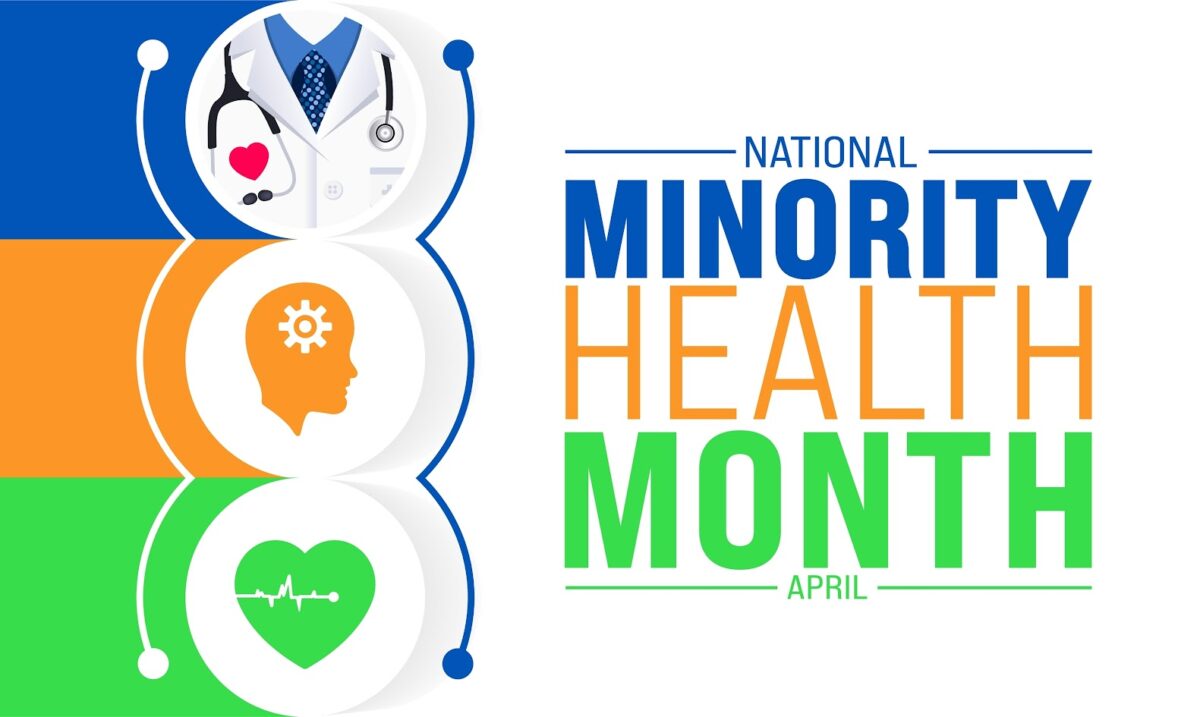Pancreatic cancer is one of the leading causes of cancer-related deaths worldwide. It’s known for its low survival rate, as it is often diagnosed at a late stage due to subtle early symptoms. The most common type is pancreatic adenocarcinoma, which accounts for about 95 percent of cases. This type begins in the cells that line the pancreatic ducts. Another less common type is pancreatic neuroendocrine tumors (PNETs).
Research is ongoing to find better ways to diagnose and treat pancreatic cancer. Advances in precision medicine and immunotherapy offer new hope for targeted treatments.
In an insightful interview with Xtalks, Cassadie Moravek, the Senior Director of Clinical Trial Portfolio and Program Management at the Pancreatic Cancer Action Network (PanCAN), shares her perspective on the organization’s efforts in advancing pancreatic cancer research and patient care. Read on to learn more from Moravek.
Please tell us more about your role as Senior Director, Clinical Trial Portfolio and Program Management at the Pancreatic Cancer Action Network.
Moravek: I am accountable for leading the overall program management for Precision Promise, our platform clinical trial for metastatic pancreatic cancer. I provide program oversight for Precision Promise and work closely with the clinical operations team to define the processes for all aspects of Precision Promise.
I lead the development of many of our key plans associated with Precision Promise, like our diversity plan that is currently under development to ensure patient populations that are typically underrepresented in pancreatic cancer clinical trials are included in Precision Promise.
I also oversee key metrics for the study overall and for our clinical trial sites to ensure efficient and effective management of Precision Promise, identifying key opportunities, priorities and timelines to keep the program running smoothly. I also work with our pancreatic cancer key opinion leaders in the pancreatic cancer field and our patient advocates to ensure their input is executed within Precision Promise to ensure the success of the program.
Can you tell us more about the offerings provided by PanCAN Patient Services? How can a PanCAN Patient Services Case Manager help patients start their search for a clinical trial using the website’s Clinical Trial Finder?
Moravek: Patient Services provides one-to-one support to pancreatic cancer patients and their family members, including providing general information about the disease, treatment options, diet and nutrition and support resources like our Survivor and Caregiver Network. Our Survivor and Caregiver Network is a group of pancreatic cancer patients and caregivers who volunteer to speak one-on-one with patients and caregivers to provide support from someone who has been in their shoes.
Some of the other specific services provided through Patient Services include our Know Your Tumor Precision Medicine Service, Patient Registry and Clinical Trial Finder.
PanCAN’s Clinical Trial Finder provides a tailored list of clinical trial matches for patients based on their diagnosis and treatment history. Patient Services Case Managers ask questions about a pancreatic cancer patient’s diagnosis (type and stage of pancreatic cancer), their treatment history, results from biomarker testing and genetic testing for inherited mutations and geographic location to be able to search for a list of applicable clinical trials. This information can be provided to our Case Managers by phone, email, or through our website, https://clinicaltrials.pancan.org/. After this information is provided, the Case Manager will provide a list of relevant clinical trial results and is available to answer any questions the patient has about clinical trials.
ON-DEMAND XTALKS WEBINAR: Preclinical Models for the Identification of Chemotherapy Predictive Signatures in Pancreatic Cancer
Register for this free webinar to learn about unlocking the synergy in preclinical models and the importance of target validation for the personalized treatment of pancreatic cancer.
We would like to know more about the Know Your Tumor medicine service. What kind of mutations are looked for when the genetic tests and biomarker tests of the tumor tissue are done? Once the results are in, how can personalized treatment be started?
Moravek: Through Know Your Tumor, pancreatic cancer patients can have a sample of their tumor that has been collected through a biopsy be tested to determine the biomarkers present in their tumor that may indicate treatment options available to the patient targeted at those biomarkers. Patients may also learn about inherited mutations that are also present that may indicate other treatment options.
Through Know Your Tumor, more than 600 genes are tested, including BRCA, BRAF, KRAS, NTRK, PALB and many others. The results of the testing are provided in a report and the report also includes treatment options based on the testing results for the patient to consider and discuss with their doctor. These treatment options may include drugs that are approved to treat pancreatic cancer, drugs that are approved to treat other types of cancer, or experimental therapies that are available through clinical trials.
Drugs that are already approved for pancreatic cancer or approved for another cancer can be prescribed by the patient’s doctor. If a patient wants to try an experimental therapy that is available through a clinical trial, they will need to contact the clinical trial staff at the hospital that is running the clinical trial to determine if they are eligible. If a patient is eligible for a clinical trial with the experimental therapy, the patient will need to go to the hospital running the clinical trial to receive the therapy.
What is the purpose of the Pancreatic Cancer Action Network’s Patient Registry, why should pancreatic cancer patients consider joining it and what kind of data is collected?
Moravek: The Patient Registry is an online database designed to collect information and data from pancreatic cancer patients, so that researchers can learn from the data, including identifying patterns in treatments, side effect management and diagnostics that will hopefully lead to improved treatment options and outcomes for patients in the future.
The Patient Registry allows patients to share data in one place, regardless of where they are receiving treatment, which allows researchers looking at the data to have access to a wider group of patients than the data that may be available at their research hospital.
Pancreatic cancer patients should join the registry if they would like to provide pancreatic cancer researchers access to data and information about their pancreatic cancer diagnosis to be able to contribute to research to improve the lives of pancreatic cancer patients in the future. Patients provide data about when they were diagnosed, the type and stage of pancreatic cancer they were diagnosed with, symptoms they experienced leading up to their diagnosis, and treatments they have received for their pancreatic cancer. They can also answer questions about their quality of life throughout their pancreatic cancer diagnosis.
Are there any disease-specific barriers that prevent patients with pancreatic cancer from enrolling in clinical trials?
Moravek: There are clinical trials available for many patients who have been diagnosed with pancreatic cancer and additional clinical trials are in development looking at experimental therapies that may provide benefit to patients with pancreatic cancer.
Because of the vague symptoms and lack of early detection methods for pancreatic cancer, many patients with pancreatic cancer are diagnosed when the disease is in an advanced stage. While there are clinical trial options available for these patients, many patients feel a sense of urgency to start a treatment for their pancreatic cancer and may not want to wait to have the additional tests completed to determine if they qualify for a clinical trial.
Additionally, many patients with advanced pancreatic cancer have pancreatic cancer that has spread to other organs, negatively impacting the function of that organ or have co-existing medical conditions, which exclude them from clinical trials.
While also not specific to pancreatic cancer, many patients diagnosed with pancreatic cancer are seen in the community hospital setting and may not have the ability to travel to a hospital that has a clinical trial, which also prevents patients from enrolling in clinical trials.
What are some ways that patient enrollment can be improved in clinical trials for pancreatic cancer?
Moravek: One way to improve enrollment in clinical trials for pancreatic cancer is for clinical trials to be designed to enroll more patients that are representative of the general pancreatic cancer population.
Over the last few years, there have been several publications describing the need to modernize clinical trial eligibility and these publications have outlined key eligibility criteria that need to be modernized to include a more diverse patient population. While some clinical trials have incorporated modernized eligibility criteria, there is still much room for improvement to ensure more patients are eligible for clinical trials, especially patients who are currently disproportionately excluded from clinical trials because of eligibility criteria, such as Black patients. Here is a recent publication: Call to action: overcoming enrollment disparities in cancer clinical trials with modernized eligibility criteria.
Another way to improve enrollment in clinical trials is to ensure clinical trials are part of the therapy options that are presented when doctors are discussing treatment options for pancreatic cancer. Many patients do not know that clinical trials are an option because they were not mentioned by their doctor.
Finally, there are many financial barriers that patients face when looking into clinical trials. When participating in a clinical trial, patients often have more frequent visits to the hospital for therapy or tests, which can mean more expenses related to travel and childcare (for patients with children) as well as time away from work. Allowing for appropriate financial assistance to reimburse for trial-related out-of-pocket costs can help to overcome some of these barriers.
Additionally, clinical trials that the patient may be eligible for may not be available at a hospital close to them, so pancreatic cancer patients may not be able to participate due to the distance required to travel to the clinical trial. Including more community cancer centers as clinical trial sites can help overcome this barrier.
Even though a small percentage of oncology clinical trials utilize some decentralized methods, what are some advantages and disadvantages of leveraging digital technologies and decentralized methods in clinical trials specific to pancreatic cancer?
Moravek: Some clear advantages of decentralized methods used in clinical trials are bringing aspects of clinical trial participation closer to patients, such as visits to a local hospital or laboratory rather than a central clinical trial site, therefore helping to overcome some of the financial and logistical barriers to participating in a clinical trial.
By using methods such as remote informed consenting and telemedicine for some visits and even gathering data via devices such as activity trackers or filling out quality-of-life surveys online to track how patients are doing, patients can have reduced trips to the clinical trial site or less time in-person at the clinical trial site. This can help more patients have access to clinical trials and can allow clinical trials to enroll faster because there may be more patients who are able to participate in clinical trials that do not require all visits to occur at the typical centralized locations. This means that clinical trials can potentially more quickly demonstrate if an experimental therapy is providing benefit to patients or not.
However, there are some disadvantages to leveraging decentralized methods. One downside is that not all pancreatic cancer patients throughout the world or even in the US have access to the digital tools or infrastructure needed to be able to participate in decentralized methods used in clinical trials, which can perpetuate disparities that already exist with clinical trials.
Additionally, while older generations are becoming more familiar and comfortable with digital technologies, since patients with pancreatic cancer tend to be diagnosed later in life, some pancreatic cancer patients may be more comfortable with typical interactions with their healthcare team such as in-person visits to discuss how they are doing and feeling versus telemedicine and activity trackers or online surveys.
Another downside is ensuring data integrity and protection of participants’ data to ensure that the data collected is useful to answer the questions being asked in a clinical trial and that the data is protected so that patients feel comfortable participating.
Decentralized methods will require training and education of already under-resourced clinical trial staff to ensure proper understanding and implementation of the methods and training and education of patients.












Join or login to leave a comment
JOIN LOGIN